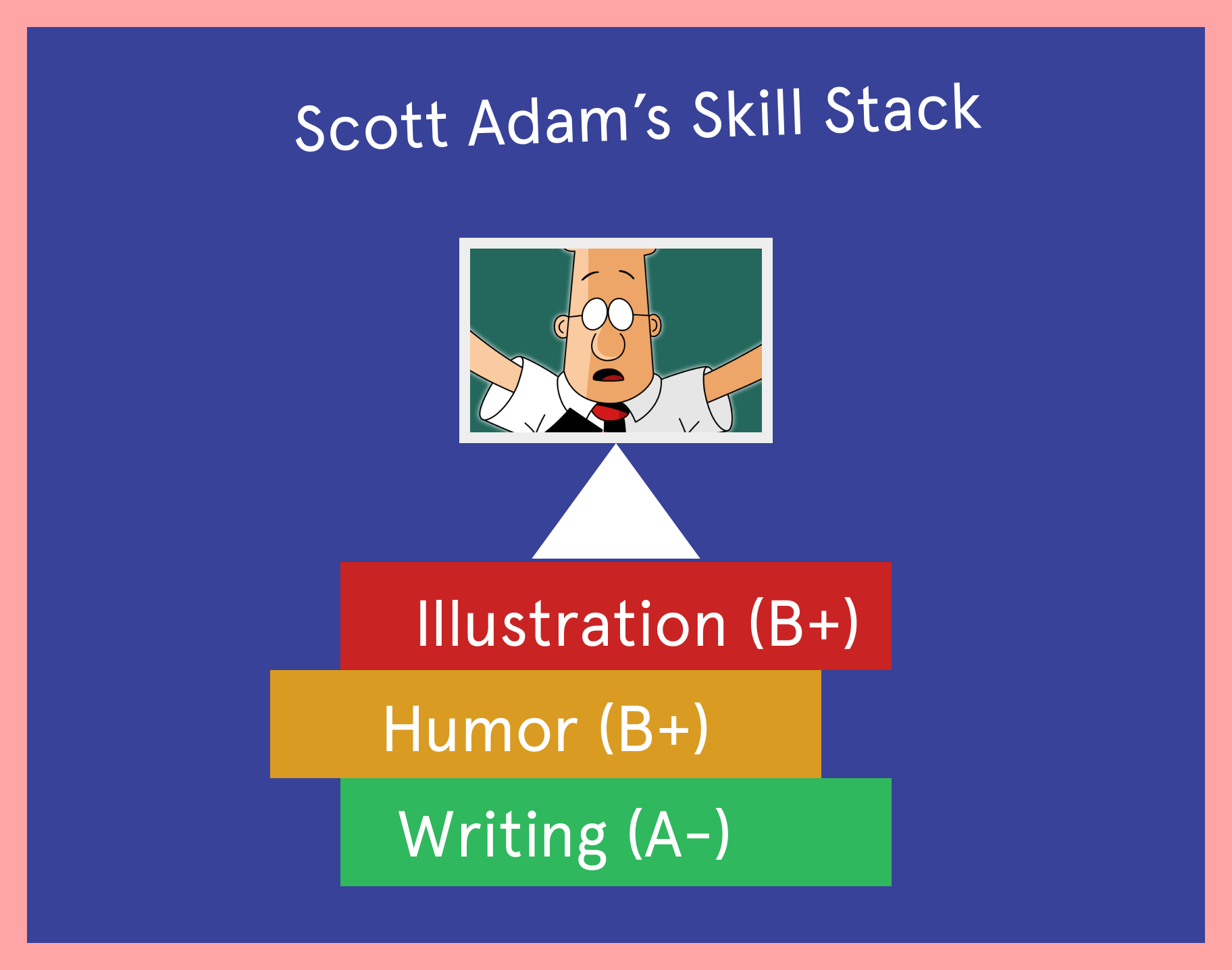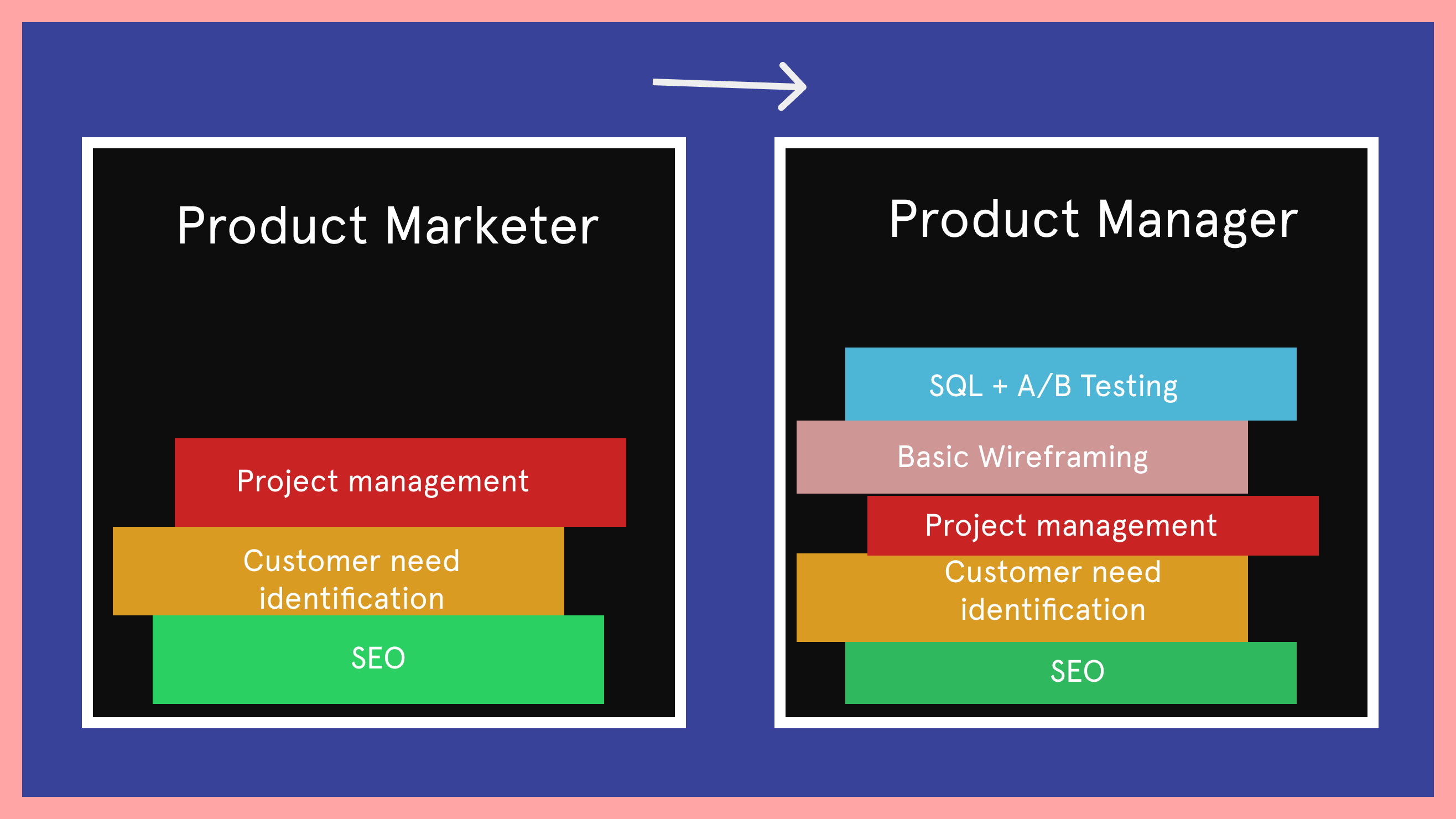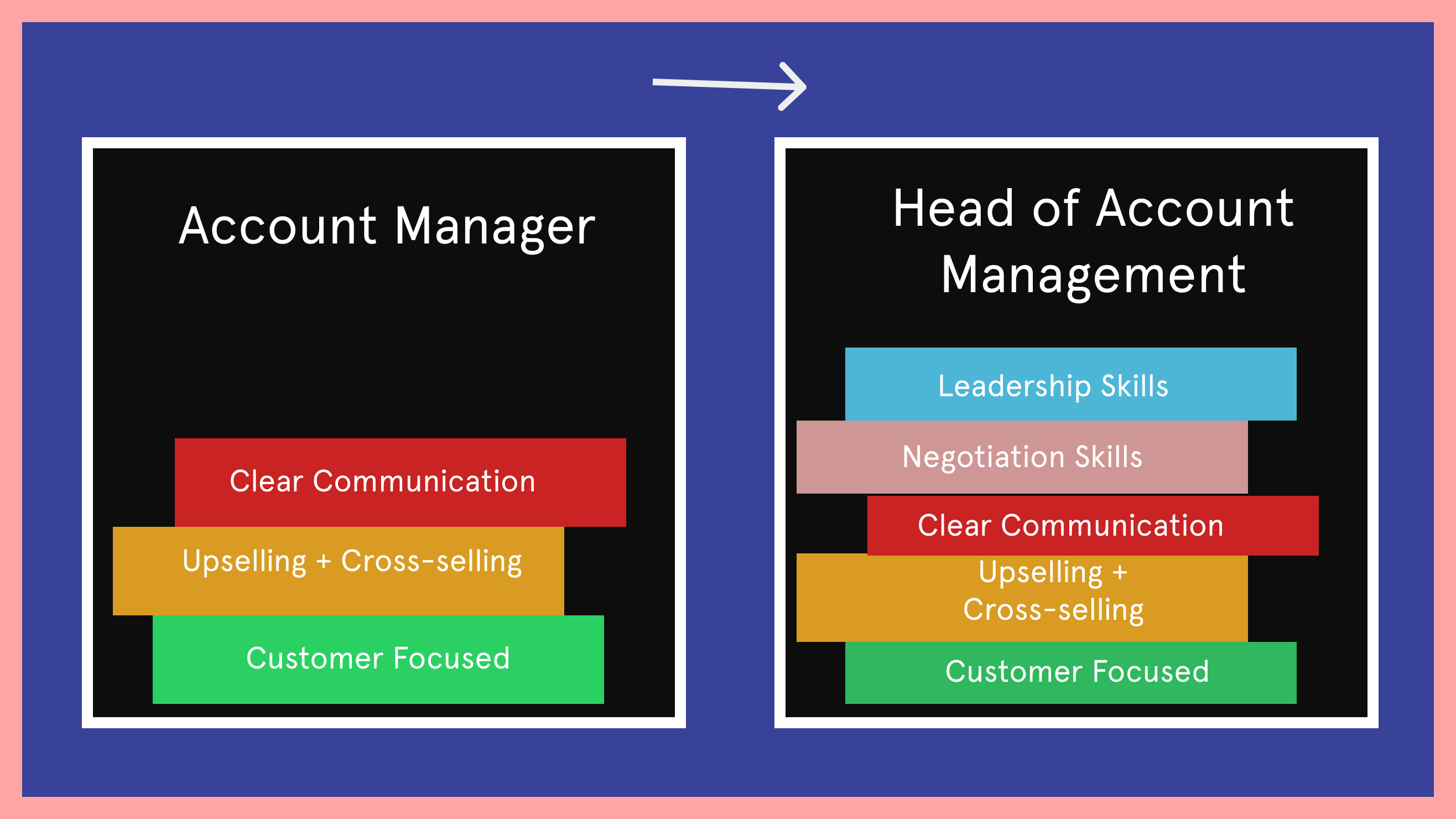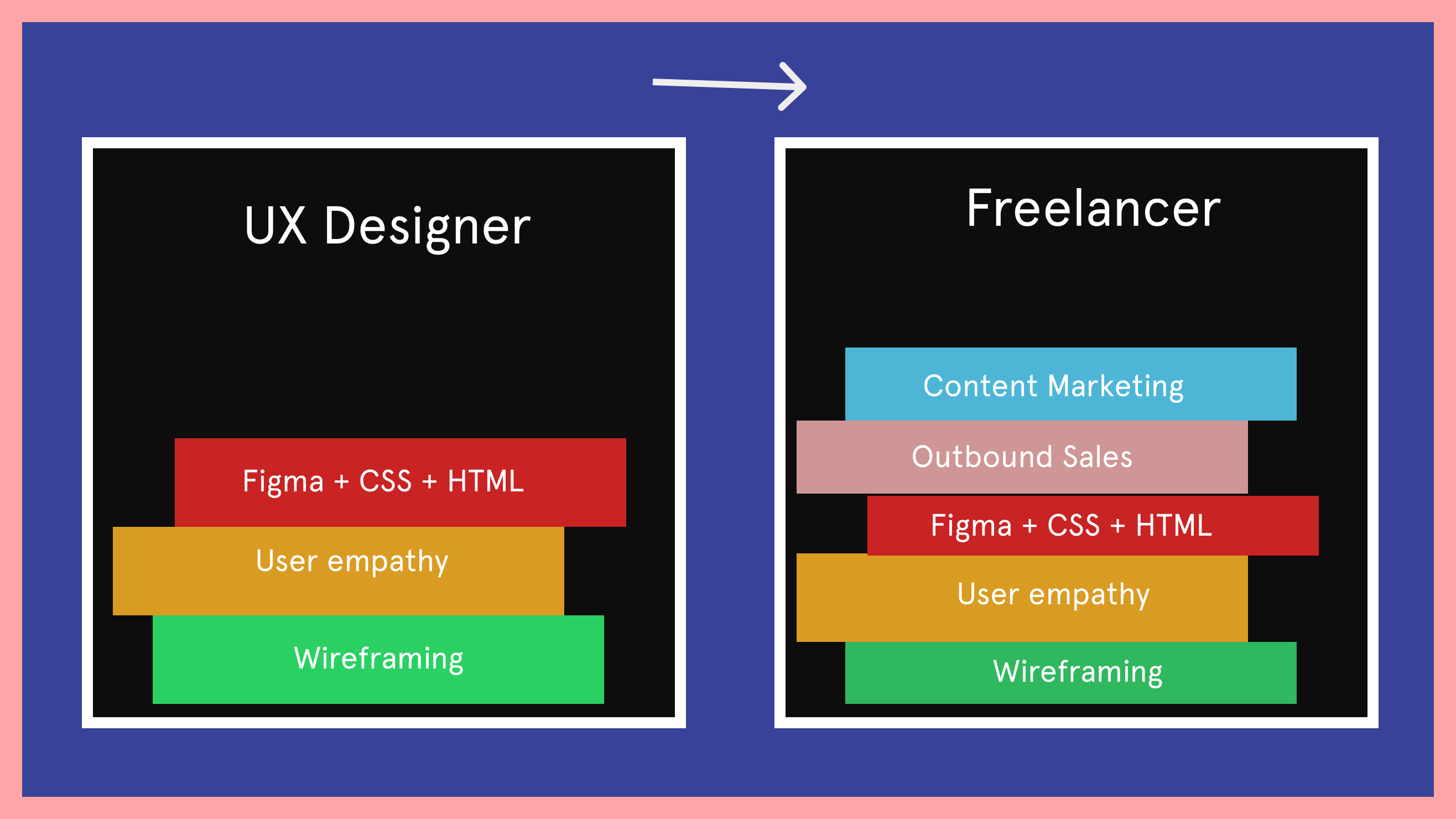Scott Adams, the creator of the famous comic strip Dilbert, states that there’s two main ways to become wealthy:
The first set includes people like Michael Phelps and Bill Gates. I’m going to make the likely assumption that you’re not part of that group.
The second set of people is much bigger. Scott Adams himself is part of that group.
He’s not the best illustrator in the world, but he’s better than most.
He’s not the best writer in the world, but he’s better than most.
He’s not the funniest person in the world, but he’s funnier than most.
The magic happens when you combine those skills of his:

Everyone has their own unique combination of skills. Scott Adams’ skill stack is going to be different than yours.
Being able to understand your own skill stack and be proactive about adding elements to it will help you make clear decisions on what opportunities to pursue.
About 14 months ago, I graduated with a philosophy degree. I had pretty good writing skills and knew a bit about content marketing because of some side projects.
But what I really wanted to do was build things. I knew that if I could learn to code, I’d be able to leverage my other skills and pursue projects that unlocked new opportunities. For instance, at work, I’d be able to complete tasks that I couldn’t before.
So that’s what I set out to do. I enrolled in an online coding school and chopped away every single day:

I learned data analysis skills like SQL and picked up web development. At work, now, I can be much more productive and rather than relying on other people whenever I need to query something, I can do so myself.
Outside of work, I can also hack on side projects that I didn’t have the ability to do before. This site is one of them (here’s another more comical example).
My technical skills, to be frank, are average. But when you combine them with my other skills like writing and marketing, I can pursue opportunities that I have a competitive advantage in.
Nat Eliason has a great article on this. Roughly speaking, you should identify what type of outcome you want and then work backwards to identify what skills you might need to get there.
Let’s do this exercise for a couple of fields:
Whilst there’s definitely roles out there for non-technical PMs, your number one priority ought to be to level up on the technical side of things.
As a product manager, you’re likely going to be collaborating with engineers on a daily basis, so learning the fundamentals of programming will help you have more credibility when you speak with technical folks.
Another thing to mention here might be that as a product marketer, you’re used to coming into play after the product already exists. You’re creating content around its features and its use cases. As a PM, you’re in charge of building it from the ground up. This article has great recommendations on what type of skills you might need to learn.
Your skill stack in this scenario might end up looking like this:

Whilst the above was an example of a lateral career change, this is moreso to do with promotion.
As an Account Manager, you’re focusing on the day to day tasks of growing your accounts and keeping your clients happy.
From what I’ve observed, the Head of Account Management is going to have to play the role of quarterback. This requires the ability to vouch for the AMs who are reporting to you (along with knowing what motivates them), collaborating smartly with other departments, and being able to stay organized whilst your number of responsibilities steadily increase.
Rather than learning technical skills, such a change might require consuming books on leadership and taking courses on effective prioritization of tasks.
Your skill stack in this scenario might end up looking like this:

Say you’ve worked for an agency as a UX Designer but now you’re ready to go out on your own. You have the chops needed to design beautiful experiences but now that you’re on your own, you need a way to find clients.
In this case, you’re going to need to focus on building a brand, doing effective outreach, and learning techniques like upselling. Jack Butcher is a perfect example of this - he spent a decade honing his craft and then started his company Visualize Value. Now he makes $100k / month.
Your skill stack in this scenario might end up looking like this:

Once you’ve identified what skills you want to learn, you need to be aggressive about finding the time to learn them.
If you work a full time job, this can be hard to do. I’ve had success with waking up a couple of hours before work and putting in some deep work. Alternatively, once you finish your work day, you can go exercise and then put in hours in the evening. I’ve found exercise to act as a great way to reset.
Another thing you could do is talk directly with your employer and ask them to subsidize any courses you want to take. The key here would be to present a clear argument on why the course would help you at your job.
Finally, one thing I’d stress is that even though the claim in this article is that you don’t need to be the best at a skill to reap its rewards, this doesn’t mean that this is some kind of magic pill to accelerate your career.
Even getting moderately good at something takes time. Over the last year I’ve spent around 1000 hours learning to code, but I’ve just scratched the surface in terms of the level I want to be at.
Whenever I feel discouraged, I’m reminded of this video featuring computer science professor Randy Pausch:
In any case, I hope you enjoyed reading this and feel free to reach out if you have any questions.
Also go check out Scott's autobiography which contains more information regarding this.
Some people call it a newsletter - I call it a good time. I write about tech careers and how you can get ahead in yours. It’s my best content (like this case study) delivered to you once a week.